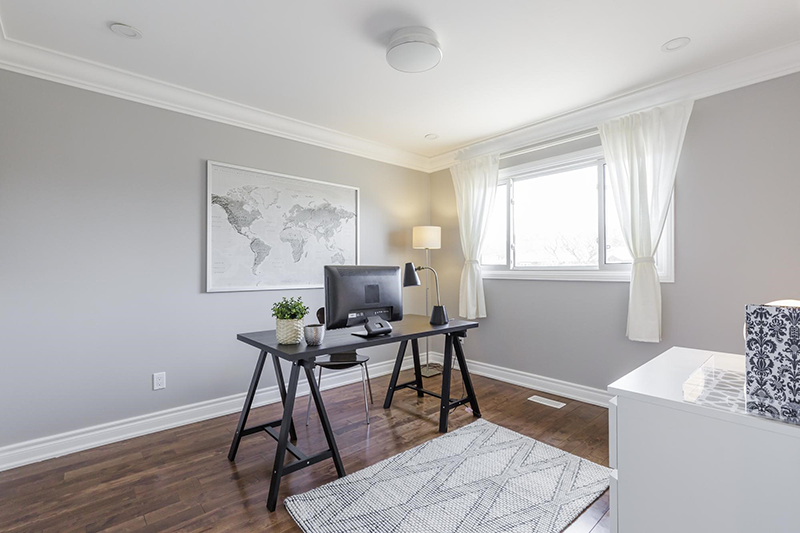There’s never been a better time to find harmony than in these long days spent at home during the coronavirus lock down.
Chances are you probably have already done a little rearranging of your house anyway, so why not try something new. The Chinese idea of Feng shui is based on the principle of Tao, or harmony. Grounded in observations of nature and structured on principles of flow, energy, and the balance of the five elements, Feng (wind) and shui (water) seeks to order our created environments on principles of the natural world, and, by doing so, to add vitality and offer peace in our lives.
The basic concepts of Feng Shui are the commanding position, the bagua, and the five elements. To achieve the commanding position you must seek the best way to design a space in order to achieve balance. To do this, you must understand the bagua, which is an energy map of eight spaces focused on compass points within the room, each relating to different life circumstances and centered around a middle area representing overall health and wellbeing. The five elements of wood, fire, earth, water, and metal connect to specific concepts, shapes, colors, and seasons (e.g., wood represents motivation, inspiration, and passion and is connected to greens and purples).
Balancing an Office Space with Home
With so many of us working from home, both because of covid-19 and the increasing growth of the gig economy, creating a home office space that offers the harmony of Feng Shui feels like a worthwhile project to bring balance between your work and home spaces.
Feng Shui is based on a clear separation of work from home and suggests that work spaces are as far from your places of relaxation (particularly your sleeping space) as possible. Your initial design choices will depend, in part, on whether you have a dedicated room to work in or must use a multipurpose space. If you fall into the latter group, it’s important to create a defined space within your multipurpose room that is solely for work, using, for example a rug that outlines the office space. You can also position furniture to define your area with the added benefit that the corridor created around your space will outline energy flow.
Finding the Commanding Position
In Feng Shui, the command position is usually the furthest point from the door that is not directly in line with it. This allows you to see what is coming and to assess quickly. As the most important piece of office furniture, your desk, which represents your career, should face the door from this position. It’s also better not to have a window at your back, which weakens your energy. Facing a window or blank wall has a similar effect. If you have to face a wall, consider covering it with artwork that speaks to your desired bagua energy or at least place a small mirror that gives you a view of the door.
Feng Shui prefers natural materials and shapes for a desk, such as wood rectangles. A solid desk provides the user a solid foundation and a large desk offers self-assurance Desks with open fronts are also popular as the space beneath encourages energy flow. Even your desk can be broken down into eight sections that represent aspects of your life, such as family, knowledge, wealth, etc. where representative items can be placed. In the knowledge section, for example, you might place your books.
The Vitality of Flow
Flow is based on the principle of “chi” or energy and can be best understood by thinking of water flowing through your design space. Too many straight lines allow for chi to flow too rapidly, which is why in terms of chi, curves are preferred to lines. On the other hand, large objects cna block the flow of chi. Feng shui encourages spacing furnishings so as to create a sense of energy flow. This means keeping furniture at a minimum. A desk and a separate chair in which to read reminds you to seek tranquil moments on those hectic days. Beyond that, think of what is absolutely essential and look for furnishings with rounded edges rather than sharp corners, which are seen as harmful to energy and balance. The use of the five elements adds harmony to your space which also encourages flow as does keeping your office and its surfaces tidy.
Full of Air and Light
Plants are an important part of feng shui’s focus on the quality of air because they act as natural filters air, contribute to the harmony of the five elements, and offer important energies. Lucky bamboo, for example, is a popular choice for instilling positive feng shui energies to your office.
Plants also speak to qualities of the bagua regions. The Dwarf Umbrella Tree works well for prosperity as does the mMoney Tree (Pachira aquatica). You can use willowy plants such as ferns to cover corners that promote negative energy. Orchids promote peace, the African violet represents wealth and the finicky fiddle leaf fig tree offers patience and wisdom.
Light is also vital to creating a conducive feng shui space. You should pay attention to both natural and artificial lighting. Try to keep windows free of obstruction to allow ample light and choose fixtures that deliver light conducive to the proper mood of your space. Metal finishes offer a way to achieve balance by adding the metal element to your office.
Mapping Your Energy
In classic Feng Shui, the bagua energies of your office space are based on compass directions and will require that you take a compass reading of your office door. Once you’ve established north, you can focus on three main areas of your work space. The north area is your career and can best be represented by water or metal elements. In contrast, the south area, which is your reputation, is tied to fire. Therefore, anything representing water, such as wavy lines or the color black, present conflicting (and therefore undesirable) energies. The last space to focus on is the southeast area where wealth resides. In this space you will want greens and blues and rectangular shapes that represent wood.
The Balance of Elements
Finding balance is about mingling the representations of the five elements within your office space. This can be achieved by using shape, color, material, or even representation through artwork. To fully understand the impact of the choices you make, consult a feng shui elements chart.
Don’t let the negative energies of this crisis period impact your work. Redesigning your office with feng shui in mind not only gives you something to focus on, but also provides the potential for a more productive work area. And we could all use a little more energy and a little more harmony these days.
—————————————————-
Interiors Revitalized is a full-service home staging, model home merchandising, and interior design firm located in Jacksonville Florida. In addition to Jacksonville, we serve the St. Johns, St. Augustine, Orange Park, Fleming Island, and Fernandina Beach areas. Contact us today at 904.625.2214 to discuss your home staging or interior design project. We’ll make that first offer your best offer!
To receive more daily home staging and interior design tips, please “Like” our Facebook page or sign up for our monthly newsletter packed with interior design tips and ideas anyone can use.









Trackbacks/Pingbacks